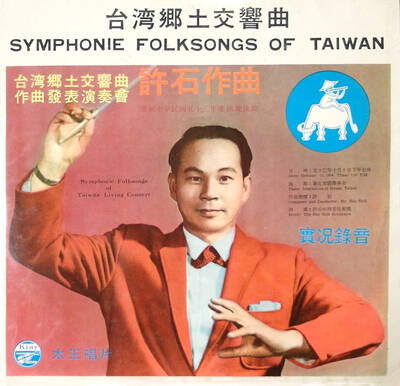Playboy magazine creator Hugh Hefner is in the middle of an interview about his 80th birthday when a TV cameraman asks him to move a statue of former girlfriend Barbi Benton from the shelf behind him.
The statue's nude breasts were in the shot and that might not pass muster with US TV decency standards.
"As much as things change, they stay the same," Hefner remarks, disappointment in his voice. "There is still controversy about, maybe even more than before, not just nudity -- a nude statue."
That is Hefner's point -- that Playboy with its mission of sexual liberation is as relevant as ever in these days of US government crackdowns on television content that some consider indecent.
"Attitudes toward nudity and Playboy have changed, in many ways, very little," says the man who gave the world the Playboy centerfold. "In some ways it is even more political than it was in the 1950s and 1960s."
The invitation to Hefner's Saturday birthday party -- he turns 80 on Sunday -- unfolds to show three photos of him: one as a toddler, one holding his new magazine in 1953, and one showing a smiling young Hefner with wavy black hair and his iconic pipe.
The hair is thinner now and gray, almost white in places. His hearing is gone in one ear and he has the slightest bit of trouble getting up from his library couch after the interview. He quit smoking after a stroke in 1985.
But otherwise, the man dressed in black silk pajamas and a scarlet silk jacket with black lapels shows few other signs that he is becoming an octogenarian.
"Maybe to some extent 80 is the new 40," he says, smiling. "I truly believe that age -- if you're healthy -- age is just a number. On many levels I feel younger today than I did 10, 15 years ago."
Hef has a lot to make him feel young. He lives with three young, blonde girlfriends in his ornate mansion in Holmby Hills, California. Their life is being documented in hit reality TV show "The Girls Next Door" on the E! cable channel.
His company is opening a new Playboy club in Las Vegas and a new edition of the magazine has debuted in Indonesia, sparking controversy in that largely Muslim nation.
The famous mansion, with its free ranging exotic birds, stone grotto and game room, is a part of the fantasy he has carefully crafted around himself.
As Hefner reflects on his life and career, he recalls that he first reinvented himself at 16, when he was rejected by a girl he had a crush on. He began referring to himself as Hef instead of Hugh, learned the jitterbug and began drawing a comic book, "a kind of autobiography that put myself center stage in a life I created for myself."
He did it again in 1960, when he began hosting a TV show, bought a fancy car, started smoking a pipe and bought the first Playboy mansion, in Chicago.
"I came out from behind the desk and became the living personification of the dreams and fantasies that were in the magazine," Hefner said.
Although he continues to personify the Playboy philosophy, he is not unaware of the passing years.
"You come to a point in life in which you begin to lose some very dear friends, some of whom are peers in terms of age," he said. "In the last few years, I have lost some very dear contemporaries, including my best buddy in high school, the first girl I went steady with, Mel Torme, one of my closest friends."
Any regrets?
"Certainly it is a life well-lived and I wouldn't trade places with anybody," he said. "My life has been so rewarding and so satisfying, I would be hesitant to change anything."

The depressing numbers continue to pile up, like casualty lists after a lost battle. This week, after the government announced the 19th straight month of population decline, the Ministry of the Interior said that Taiwan is expected to lose 6.67 million workers in two waves of retirement over the next 15 years. According to the Ministry of Labor (MOL), Taiwan has a workforce of 11.6 million (as of July). The over-15 population was 20.244 million last year. EARLY RETIREMENT Early retirement is going to make these waves a tsunami. According to the Directorate General of Budget Accounting and Statistics (DGBAS), the

Many will be surprised to discover that the electoral voting numbers in recent elections do not entirely line up with what the actual voting results show. Swing voters decide elections, but in recent elections, the results offer a different and surprisingly consistent message. And there is one overarching theme: a very democratic preference for balance. SOME CAVEATS Putting a number on the number of swing voters is surprisingly slippery. Because swing voters favor different parties depending on the type of election, it is hard to separate die-hard voters leaning towards one party or the other. Complicating matters is that some voters are

Sept 22 to Sept 28 Hsu Hsih (許石) never forgot the international student gathering he attended in Japan, where participants were asked to sing a folk song from their homeland. When it came to the Taiwanese students, they looked at each other, unable to recall a single tune. Taiwan doesn’t have folk songs, they said. Their classmates were incredulous: “How can that be? How can a place have no folk songs?” The experience deeply embarrassed Hsu, who was studying music. After returning to Taiwan in 1946, he set out to collect the island’s forgotten tunes, from Hoklo (Taiwanese) epics to operatic

Five years ago, on the verge of the first COVID lockdown, I wrote an article asking what seemed to be an extremely niche question: why do some people invert their controls when playing 3D games? A majority of players push down on the controller to make their onscreen character look down, and up to make them look up. But there is a sizable minority who do the opposite, controlling their avatars like a pilot controls a plane, pulling back to go up. For most modern games, this requires going into the settings and reconfiguring the default controls. Why do they